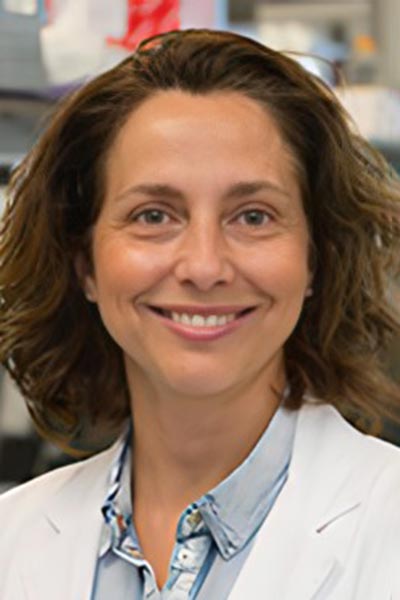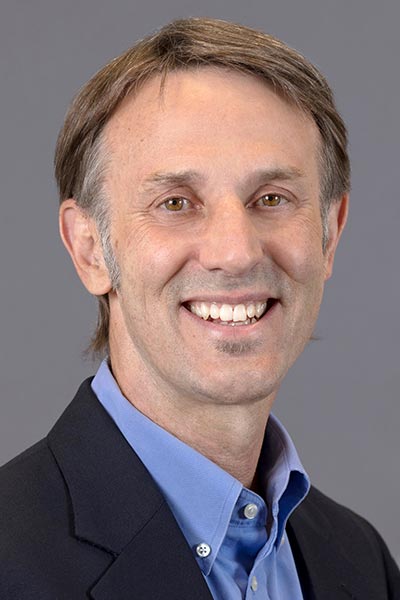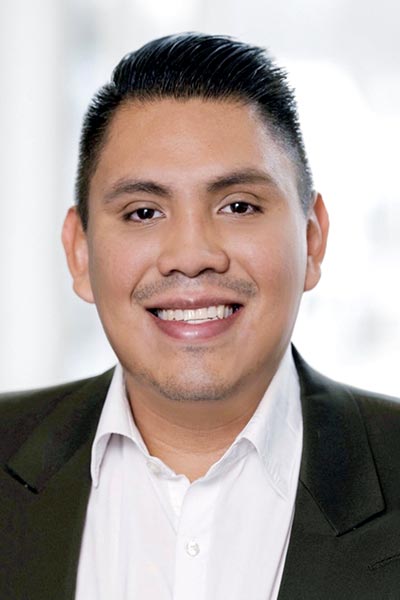Advances in cancer prevention research will be highlighted in four sessions
//
Estimated Read Time:
From the basic biology of early cancer detection and interception to population-wide prevention strategies, investigators continue to make tremendous progress in the science of cancer prevention. The AACR Annual Meeting 2023 scientific program features four special advances in prevention research sessions covering some of the latest developments in the field.

APRV01: Diagnosis and Management of Hereditary Cancers
Monday, April 17 | 12:30 – 2 p.m. ET | Tangerine Ballroom 3-4 (WF3-4), Convention Center
Session Chair: Violeta Serra Elizalde, PhD, Group Leader, Experimental Therapeutics Group, Vall D’Hebron Institute of Oncology, Barcelona, Spain
Ten percent of cancers are due to inherited mutations. This session will cover novel aspects in the diagnosis and management of three relevant hereditary cancers. The first presentation will cover personalized strategies, including immunotherapy, for patients diagnosed with Lynch syndrome. The second presentation will address how genetic testing in prostate cancer patients has recently expanded, with increasing implications for screening and treatment in carriers. The final presentation will cover the need to identify functional DNA repair deficiency as a biomarker of PARP inhibitor response for BRCA1/2-associated cancers.

APRV04: Increasing the Reach and Efficacy of Evidence-Based Interventions for Tobacco Dependence
Tuesday, April 18 | 10:15 – 11:45 a.m. ET | Room W311 A-D, Convention Center
Session Chair: David W. Wetter, PhD, Jon M. and Karen Huntsman Presidential Professor, Director of the Center for Health Outcomes and Population Equity, and Senior Director for Cancer Health Equity Science at the Huntsman Cancer Institute, University of Utah
Despite dramatic declines in the prevalence of tobacco use over the last 60 years, tobacco remains the leading cause of preventable death and disability in the U.S., with almost 30 percent of cancer deaths directly attributable to tobacco use. In this session, speakers will discuss implementation strategies for optimizing the efficacy and increasing the reach of tobacco cessation treatment at the point of care and via population health management approaches.
“The talks in this session span the spectrum of tobacco cessation research, from how we develop more effective interventions and treatment to how we then get them to the people who need them,” Wetter said. “I think the key takeaway from this session will be that we have interventions and treatments that we know work. But the bottom line is, it doesn’t matter how effective they are if we don’t get them to the people who need them most, particularly populations that have been historically marginalized because that is where tobacco use is concentrated.”

APRV03: Community Engagement to Reduce Cancer Disparities
Tuesday, April 18 | 12:30 – 2 p.m. ET | Room W311 A-D, Convention Center
Session Chair: Francisco Cartujano Barrera, MD, Assistant Director, Community Outreach & Engagement, Wilmot Cancer Institute, and Assistant Professor in the Department of Public Health Sciences at the University of Rochester Medical Center
Community engagement is the process of working collaboratively with and through groups of individuals affiliated by geographic proximity, special interest, or shared experiences to address issues that affect the well-being of those individuals. Community engagement is important because it has been identified as a strategy to effectively mobilize and direct resources to eliminate cancer disparities.
“This session will highlight how community engagement has been essential in promoting cancer detection and prevention research among underserved and underrepresented communities,” Cartujano Barrera said. “My fellow speakers and I will talk about how to address tobacco-related disparities among Latinos via community-based participatory research, best practices to engage the transgender community in cancer prevention and control, and barriers and facilitators for breast and cervical cancer screening among Latinx trans and nonbinary individuals.”

APRV02: Strategies for Cancer Interception
Wednesday, April 19 | 10:15 – 11:45 a.m. ET | Room W224, Convention Center
Session Chair: Marcia R. Cruz-Correa, MD, PhD, Professor of Medicine, Biochemistry, and Oncology at the University of Puerto Rico School of Medicine and Comprehensive Cancer Center, San Juan
This session will examine the molecular understanding of cancer development and how this knowledge is guiding strategies to intercept the progression of cancer among individuals with premalignant conditions. Speakers will present examples of current and evolving concepts for cancer interception in lung cancer, multiple myeloma, and gastric cancer.
“Interception is important because preventing cancer is always better than treating cancer,” Cruz-Correa said. “Identifying cost-effective ways to intercept the progression of disease among high-risk populations has the potential to impact and reduce the burden of cancer, especially among vulnerable populations. We hope participants will leave the session with a better understanding of the molecular basis for cancer interception. We also hope the session will provide an opportunity to network with experts in the field and generate additional ideas to pursue in this important area of research.”




